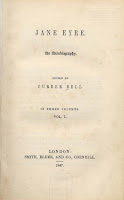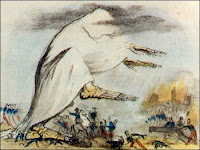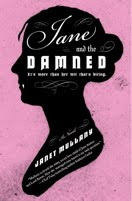
Amy Kathryn!
Please send your contact info to riskiesATyahoo.com so Christie can send you your signed copy.
 A big Riskies welcome to Christie Kelley who’s here to talk about her October release SCANDAL OF THE SEASON and to whom I’m grateful for saving me from independent thought today. She’ll be giving away a signed copy to one person who comments, so please post a question or comment.
A big Riskies welcome to Christie Kelley who’s here to talk about her October release SCANDAL OF THE SEASON and to whom I’m grateful for saving me from independent thought today. She’ll be giving away a signed copy to one person who comments, so please post a question or comment.
I’ve known Christie just about as long as I’ve been writing. She’s my critique partner and one of the best plotters I know. When Christie was starting this book, she posed the innocent question to the critique group: Can you think of a good reason why the hero’s mother should run a brothel? Much hilarity ensued.
Kelley’s fresh and vibrant romances are emotional, fast-paced and intriguing. Her originality captivates readers and grabs their attention. She gifts everyone with a holiday-set story that’s a little bit Hans Christian Andersen merged with all of her sensual storytelling ability. 4 stars, Kathe Robin, Romantic Times
This book sparkles like diamonds and dazzles like rubies. The Reading Reviewer
This is book number four in your series about a group of women who’ve vowed never to marry, although it reads very well as a stand alone. Do you miss your characters when a book is finished?
 I don’t normally because they pop up as secondary characters in the next book. I did just finish writing the last of the Spinster Club series. It was difficult to finish because these characters have been part of my life since 2004 when I first started writing EVERY NIGHT I’M YOURS. All the spinsters wanted more “on screen” time in the last book as if to get their last words in.
I don’t normally because they pop up as secondary characters in the next book. I did just finish writing the last of the Spinster Club series. It was difficult to finish because these characters have been part of my life since 2004 when I first started writing EVERY NIGHT I’M YOURS. All the spinsters wanted more “on screen” time in the last book as if to get their last words in.
Who did you visualize as Somerton when you were writing him, or who would you cast in the movie?
 What an easy question! As soon as I started writing Somerton as a secondary character I visualized Jensen Ackles from Supernatural. He was my perfect Somerton in looks and character.
What an easy question! As soon as I started writing Somerton as a secondary character I visualized Jensen Ackles from Supernatural. He was my perfect Somerton in looks and character.
What’s your favorite scene in the book?
I don’t want to give too much away but it’s when my heroine, Victoria does something completely selfless because she loves Somerton. She gets hurt in the process and he can’t understand why she did it. She tells him she loves him and didn’t want to see him hurt. The fact that someone would do something for him because of love just about breaks him. I love it!
What was the most difficult part for you to write?
I had too much plot in this book. It just wasn’t working. Thankfully, my other critique partner, Kathy Love speed read the book and we replotted a few things. After two weeks of rewriting I was able to kill some of the external plot that was taking over the book. I guess that what I get for not being a plotter.
Which writers have influenced you?
Jane Austen for one. But I didn’t really discover her until college. I grew up reading modern historical romances so I think I was most influenced by Johanna Lindsey.
What’s next for you?
The final Spinster Club book, ONE NIGHT SCANDAL, will be a June 2011 release. Right now, I’m busy writing a proposal for a shorter series based on a very minor character in SCANDAL OF THE SEASON.
Thanks, Christie, and let’s chat!
And our winners are … Lucy and Kirsten who have won a signed copy of BESPELLING JANE AUSTEN, and Maureen and Leanne who are the JANE AND THE DAMNED winners. Please send your contact info to riskiesATyahooDOTcom.
My latest Netflix find is The Bronte Sisters, a documentary about Emily, Charlotte, and Ann. I knew very little of the three sisters except that they all lived at home and their father outlived them. As it turns out, the story of the Bronte sisters is a story of how difficult life could be without modern medicine and sanitation.
Howarth, The village where the sisters grew up in Yorkshire, lacked proper sewers. Its dead were buried up on a hill which contaminated the water supply. This problem was not identified until 1850 and even then was not immediately rectified. Lots of people died as a result.
Disease was a fact of life. The Brontes had six children and all of them contracted scarlet fever at an early age. Mrs. Bronte developed cancer and died a slow and painful death. Her last words were, “Oh, God, my poor children.” Ann, the youngest, was not even two years old when her mother died.
 In 1824 when Charlotte was just eight years old, she, her older sisters Marie and Elizabeth and Emily, only six, were sent to the Cowan Bridge school, a cruel and harsh place immortalized by Charlotte in Jane Eyre. A year later there was a typhus epidemic and all the girls became ill. Marie, then age 11, was the first to come home, ultimately succumbing to the illness. Elizabeth soon followed her. Charlotte and Emily survived (think of what we would have missed if they had not!)
In 1824 when Charlotte was just eight years old, she, her older sisters Marie and Elizabeth and Emily, only six, were sent to the Cowan Bridge school, a cruel and harsh place immortalized by Charlotte in Jane Eyre. A year later there was a typhus epidemic and all the girls became ill. Marie, then age 11, was the first to come home, ultimately succumbing to the illness. Elizabeth soon followed her. Charlotte and Emily survived (think of what we would have missed if they had not!)
Later, when Charlotte was teaching at Mrs. Wooley’s school (a much better place than Cowan Bridge), she arranged for Emily, then age 17, to attend. Emily, a shy and complicated person, was extremely homesick for Haworth. She went into a decline that sounded a lot like clinical depression and went home after three months.
The family’s hopes for good fortune rested on the Brontes’ one brother, Branwell, considered to be the most intelligent, most artistic, most creative. He was sent to London to attend Art school, but instead squandered his tuition money and indulged in alcohol and opium. After this, his life just slid into worse and worse addiction, embarrassing his family with bouts of public drunkeness. He died of tuberculosis at age 31 after a wasted life.
Without Branwell to depend upon, it was up to the girls to make money, but they were not very successful at anything they tried. Ann was able to keep a job as a governess longer than Charlotte’s attempt at that profession, but the young man she fell in love with died of cholera.
Charlotte decided they should set up their own school, but that attempt failed. Desperate, she came upon a set of poems Emily wrote and got the idea to have them published. Each of the sisters contributed poems, but the volume only sold a few copies. After that, Charlotte, Ann, and Emily each wrote novels and sent them to publishers. They each published books in 1847. Charlotte’s Jane Eyre was the runaway success. Emily’s Wuthering Heights was considered unconventional. Ann’s Agnes Grey was based on her life as a governess.
A year later Emily died of tuberculosis, and a year after that Ann died of the same illness, leaving only Charlotte. Charlotte kept writing and in 1854 she married, finally having an opportunity for some security and stability in her life. A year later she died of tuberculosis complicated by typhoid fever and pregnancy.
All I could think of while watching this documentary was how prevalent disease and death must have been in the early to mid-nineteenth century. Can you imagine watching your wife and children dying, one after the other? How very awful!! We don’t usually dwell on the prevalence of disease and death of the Regency in our books. For good reason. It’s depressing!
I also couldn’t help but wonder what Charlotte, Emily, and Ann might have produced if they’d lived longer.
What other diseases can you think of that so easily took lives in the 1800s and not now? Do you think Charlotte and Emily could have topped Jane Eyre and Wuthering Heights if they’d lived longer?
Come see what I come up with for Diane’s Blog on Thurs. I’ll be announcing my last September winner for my website contest on Tuesday. And don’t forget to check out the new eHarlequin Harlequin Historical Blog.
 Good morning! Today I’m going to talk about some of the research I did for JANE AND THE DAMNED which released a few days ago and I’m going to give away two copies of the book. I’ll announce the names of the winners on Monday, so please feel free to comment on yesterday’s post about BESPELLING JANE AUSTEN too.
Good morning! Today I’m going to talk about some of the research I did for JANE AND THE DAMNED which released a few days ago and I’m going to give away two copies of the book. I’ll announce the names of the winners on Monday, so please feel free to comment on yesterday’s post about BESPELLING JANE AUSTEN too.
So who were the Damned in Georgian England? They were the fashionable vampires who were regarded with awe and envy and lust by the ton, and were the favored companions of the Prince of Wales who later became the Prince Regent. Because being fed upon–the euphemism for the Damned’s feeding was dining–was intensely pleasurable for mortals, and because dining was inevitably accompanied by skillful sexual activity (they had had centuries of practice) without any risk of pregnancy and disease, their parties were legendary.
Naturally, etiquette books regarding correct behavior with the Damned became best sellers and I was fortunate enough to acquire a copy of this guide from 1795:
The Gentlewoman’s Guide to
The Damned
being a guide to the Manners, Habits, and Pleasures of the Fashionable Immortals; including a full Set of Instructions for those who are invited to Dine; and Useful Instructions on Matters of Dress and Deportment and Methods of Revival the Morning After
It’s an extraordinary record of social behavior, with some information I found very useful. For instance:
It is advised that a Lady’s gown should display the neck and shoulders in as revealing a way as possible without actually resorting to Vulgarity, which the Damned abhor, for those areas of the person are naturally of greatest interest to them.
And
It is unwise to speculate upon the true age of one of the Damned. Generally one should converse on the weather, fashion, and politics.
It appears the Damned did actually provide food for their human guests, as both courtesy and as a matter of practicality to keep up the strength of those who would later provide them with their dinner:
For a guest to remark upon the lack of appetite displayed by the Fashionable Immortal Host is considered Impolite; moreover, a guest is supposed to dine heartily, for the menu will have been prepared with the utmost consideration, as providing the most pleasure for the Damned themselves.
This advice was given for the actual dining experience:
While in the Transport of Sensual Delight which accompanies the Host’s Dining, a lady should remove her necklace, for the teeth of the Damned enjoy Remarkable Sensitivity at such a time. She may also, if she wishes, remove her gloves.
As for the morning after, when the fashionable lady might feel a little wobbly from blood loss, the guide advises that
…although many consider a glass of wine with a drop of Immortal blood dissolved in it to be infinitely superior to any Apothecary’s Brew, the blood will most probably be provided by a fledgling, a lesser member of the society of the Damned. It is most uncivil to refuse on the grounds of the fledgling’s rank, and consider that even a drop of fledgling blood will bring Improvement to the Complexion and Brightness to the Eyes.
What recommendations would you have for an etiquette guide to those consorting with Regency-era vampires?